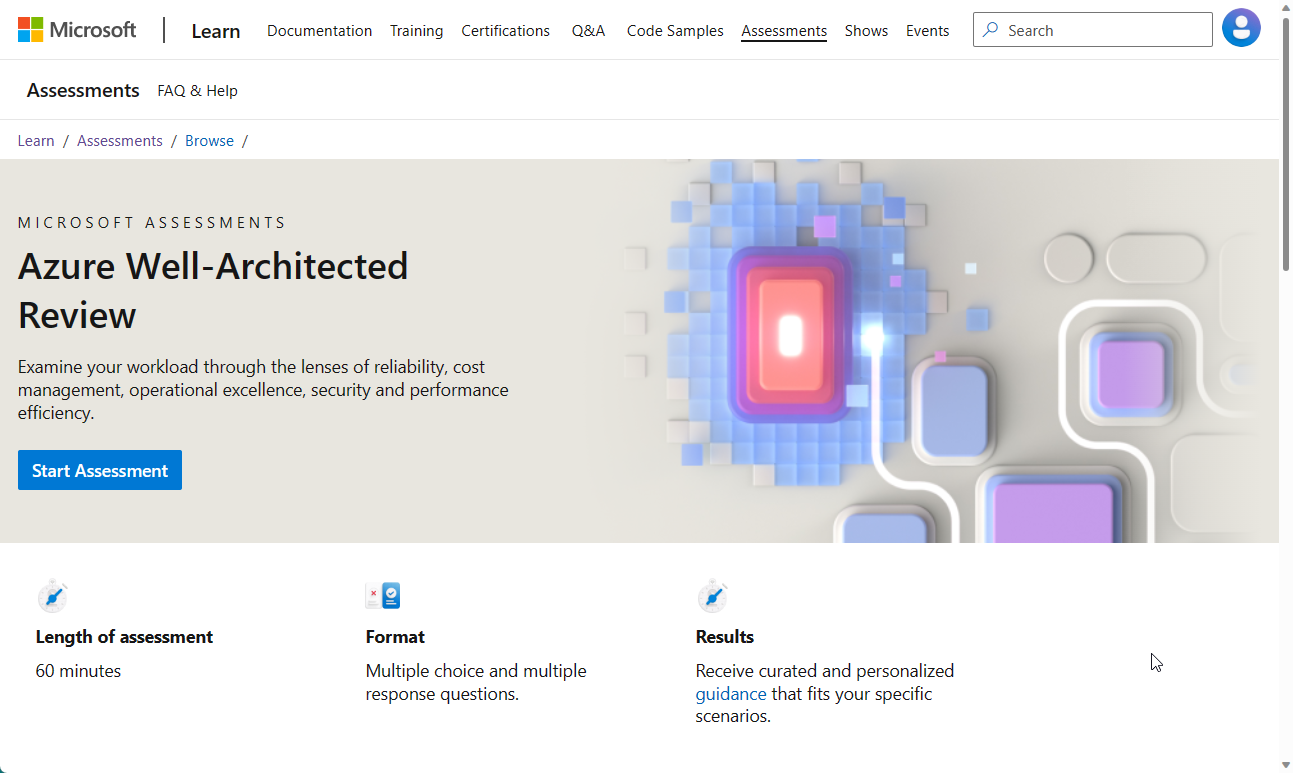Microsoft Azure Well-Architected Framework pillars
The Azure Well-Architected Framework pillars drive architectural excellence at the fundamental level of a workload.
Use this matrix to familiarize yourself with the key concepts:
| Pillar | Workload concern | Apply the principles | Strike a balance |
|---|---|---|---|
| Reliability | Resiliency, availability, recovery | Design for business requirements, resilience, recovery, and operations, while keeping it simple. Design principles |
Tradeoffs |
| Security | Data protection, threat detection, and mitigation | Protect confidentiality, integrity, and availability. Design principles |
Tradeoffs |
| Cost Optimization | Cost modeling, budgets, reduce waste | Optimize on usage and rate utilization while keeping a cost-efficient mindset. Design principles |
Tradeoffs |
| Operational Excellence | Holistic observability, DevOps practices | Streamline operations with standards, comprehensive monitoring, and safe deployment practices. Design principles |
Tradeoffs |
| Performance Efficiency | Scalability, load testing | Scale horizontally, test early and often, and monitor the health of the solution. Design principles |
Tradeoffs |
Important
The reference architectures available in the Azure Architecture Center are designed with the design principles in mind. The architecture articles describe a prescriptive path for applying the design principles and provide a holistic view on the Ten design principles for Azure applications.
Assessment review tool
Assess your workload by using the core pillars to identify and prioritize opportunities for improving the posture of your workloads.
Start your assessment with the Azure Well-Architected Review.
Integrate with Azure recommendation services
Azure Advisor uses the core pillars as a basis for analyzing your resource configuration and usage telemetry and provides appropriate recommendations.
Azure Advisor score is a core feature of Azure Advisor that aggregates Advisor recommendations into a simple, actionable score. You can categorize the overall score into the core pillars of the Well-Architected Framework. Use the score to prioritize the actions that yield the biggest improvement.
